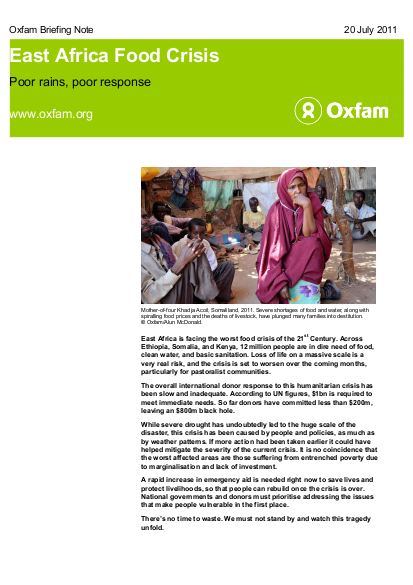
East Africa is facing the worst food crisis of the 21st Century. Across Ethiopia, Somalia, and Kenya, 12 million people are in dire need of food, clean water, and basic sanitation. Loss of life on a massive scale is a very real risk, and the crisis is set to worsen over the coming months, particularly for pastoralist communities. The overall international donor response to this humanitarian crisis has been slow and inadequate. According to UN figures, $1bn is required to meet immediate needs. So far donors have committed less than $200m, leaving an $800m black hole. While severe drought has undoubtedly led to the huge scale of the disaster, this crisis has been caused by people and policies, as much as by weather patterns. If more action had been taken earlier it could have helped mitigate the severity of the current crisis. It is no coincidence that the worst affected areas are those suffering from entrenched poverty due to marginalisation and lack of investment. A rapid increase in emergency aid is needed right now to save lives and protect livelihoods, so that people can rebuild once the crisis is over. National governments and donors must prioritise addressing the issues that make people vulnerable in the first place. There’s no time to waste. We must not stand by and watch this tragedy unfold.